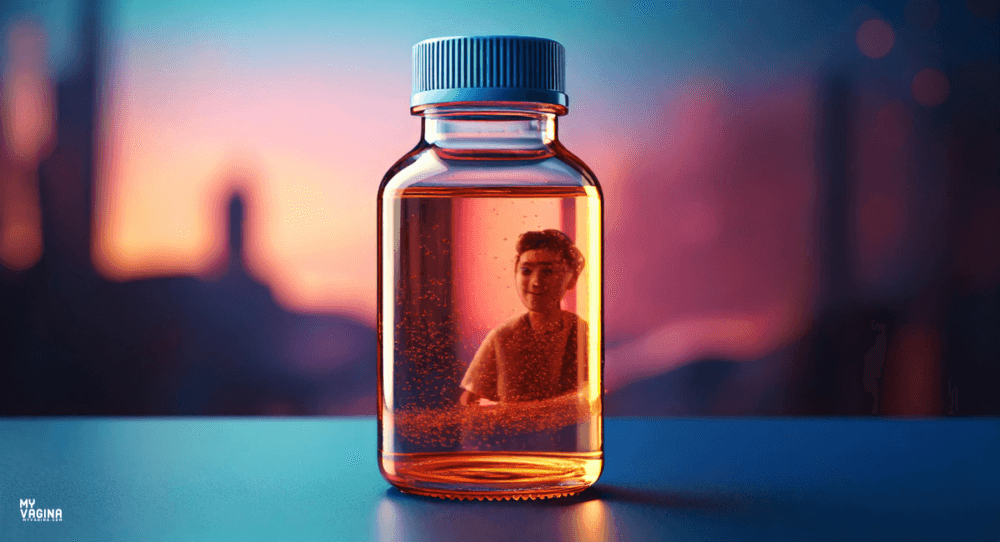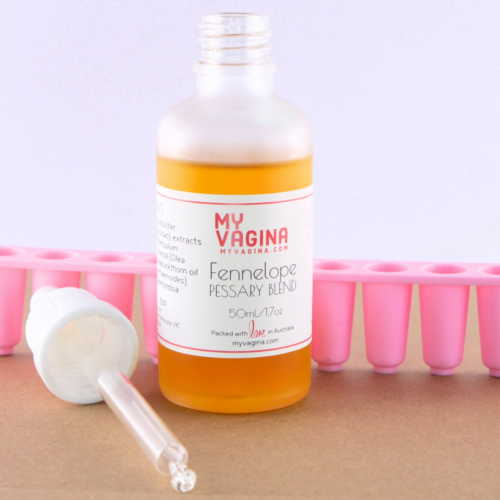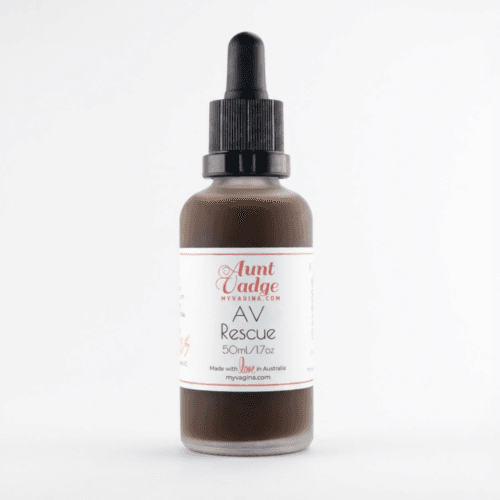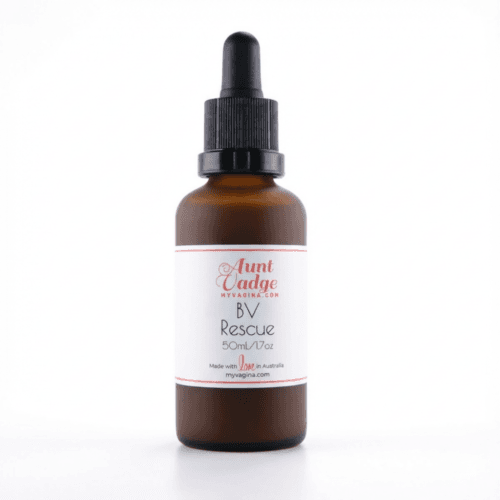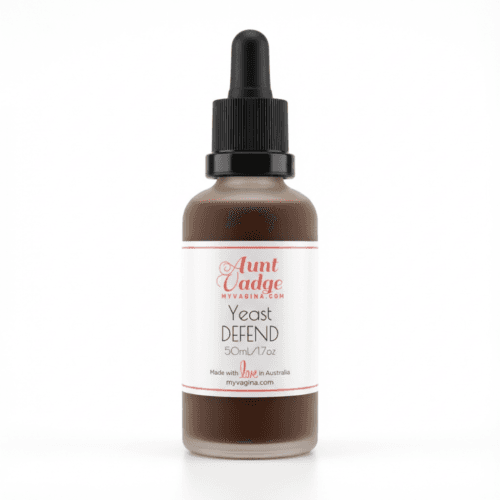Several factors can influence the sexual experience of a transgender or nonbinary man who has a vulva and vagina, and is on testosterone therapy. Possible changes can include clitoral growth, a dry, irritated vagina, upsets to the pH balance and microbial profile, and changes to libido.
Clitoral growth (‘bottom growth’)
One of the most noticeable effects of testosterone for many trans men is clitoral growth, also known as bottom growth. Testosterone causes the clitoris to increase in size, which can range from slight enlargement to more significant growth over time.
This change is entirely normal and often one of the first effects of testosterone therapy. For some, this growth can be affirming and contribute to increased sexual confidence and comfort with their body.
However, it can also bring changes to sensation that require adjustment.
The clitoris may become more sensitive during and after growth. For some, this heightened sensitivity can enhance sexual pleasure, making masturbation or partnered sex more enjoyable.
You might discover new ways to stimulate yourself or new preferences for touch, pressure, or movement.
On the other hand, some trans men find that increased sensitivity can make certain types of stimulation uncomfortable or even painful, especially if the area is overstimulated or dry.
To address this, experimenting with different kinds of touch or using lubricants can help. A water-based or silicone-based lubricant can reduce friction and enhance comfort, whether you’re masturbating or engaging in sex with a partner.
If the sensitivity feels overwhelming, you might prefer indirect stimulation, such as touching through clothing or focusing on areas around the clitoris rather than directly on it. Bottom growth varies from person to person, so take time to explore what works for you.
Vaginal atrophy and discomfort
Testosterone reduces estrogen levels in the body, which can lead to vaginal atrophy—thinning and drying of the vaginal walls.
This is a common effect of T and can cause the vaginal tissues to become less elastic and more prone to irritation or tearing. For trans men, this can create challenges during masturbation or penetrative sex, as friction or dryness may result in discomfort or pain.
If you experience vaginal atrophy, using lubricants during sexual activity is essential. Look for high-quality water-based or silicone-based lubricants, as oil-based ones can damage latex condoms if you use them for protection.
My Vagina’s localised phytoestrogenic all-natural applications are excellent tools in the fight against vaginal dryness and discomfort.
Fennelope is a trans man’s best friend, and can be used instead of local estrogen cream to rebuild the vaginal epithelial cells to avoid dryness and irritation, without influencing systemic estrogen levels.
Additionally, vaginal moisturisers designed for daily use can help improve overall hydration and elasticity, reducing dryness over time. These products are available over-the-counter and are safe for most people.
If dryness or discomfort persists, low-dose estrogen creams or suppositories may be an option. These products deliver estrogen locally to the vaginal tissues without significantly affecting your overall testosterone levels. They can help restore some of the lost elasticity and moisture.
Speaking to a healthcare provider knowledgeable about trans healthcare can help you find the best solution for your needs.
pH balance and risk of infections
Testosterone can also alter the natural pH balance of the vagina by reducing the number of estrogen-dependent lactobacilli populations. Typically, these bacteria maintain a slightly acidic environment, which helps prevent harmful bacteria from overgrowing.
However, on testosterone, the decrease in estrogen can lead to changes in the vaginal microbiome, increasing the risk of bacterial vaginosis (BV), aerobic vaginitis (AV), or yeast infections.
What is BV?
Bacterial vaginosis occurs when the natural bacteria in the vagina become imbalanced, leading to symptoms like unusual discharge (often greyish or with a strong fishy smell) and irritation.
What is AV?
Aerobic vaginitis is an overgrowth of bacteria that typically live in the gut or colon. AV can occur for many reasons, including unhygienic sexual practices, and may also be associated with urinary tract infections. The same bacteria are involved.
Never allow anal to vaginal penetration with fingers, toys or penises without washing thoroughly first, as this is a surefire way to end up with AV.
What is a yeast infection?
Yeast infections, caused by an overgrowth of Candida yeast, can cause itching, redness, and thick white discharge. These conditions can interfere with comfort and pleasure during masturbation or sex.
How to reduce infection risk
To reduce your risk of infections, avoid douching or using scented soaps in the genital area, as these can disrupt the natural balance of bacteria. Stick to mild, fragrance-free cleansers and rinse thoroughly with water.
Testing for infections using at-home tests
Get an at-home comprehensive vaginal microbiome test every now and again, and particularly if you suspect there is an issue due to symptoms.
STI testing
At-home tests may not test for sexually transmitted infections, so ensure you see your doctor for thorough testing if you are at risk.
If you notice symptoms of an infection, see a healthcare provider for testing.
Treating vaginal infections
BV, AV and yeast infections are usually easy to treat, using My Vagina’s range of natural treatments, antibiotics, or antifungal drugs. But, diagnosis is the first step and that means a test.
Changes in libido
Testosterone often increases libido (sex drive) for many trans men, which can be a significant and sometimes surprising change. You might find yourself thinking about sex more often, feeling aroused more easily, or wanting to explore masturbation or sex in new ways.
For some, this increase in libido is empowering and affirming, allowing them to connect with their body in ways they didn’t before. However, for others, it might feel overwhelming or out of sync with their emotional readiness for sexual activity.
It’s important to remember that libido is a natural part of your body’s response to testosterone, and there’s no right or wrong way to feel about it. If your libido feels too intense or difficult to manage, exploring ways to channel your sexual energy through solo activities, like masturbation, can help.
Masturbation is a safe and private way to explore what feels good and learn more about your preferences without involving a partner.
On the flip side, some people on testosterone might not experience a noticeable increase in libido or could even see fluctuations over time. Factors like stress, emotional health, or physical discomfort (such as vaginal atrophy) can all influence libido.
If you’re experiencing changes that feel challenging, talking to a trusted healthcare provider or therapist can help you navigate your feelings and find strategies to manage them.
Navigating pleasure and body dysphoria
For trans men, engaging in masturbation or sex can sometimes bring up feelings of dysphoria—discomfort or distress related to your body not aligning with your gender identity. This can be particularly true for those who feel disconnected from having a vulva, vagina, or other anatomy associated with their assigned sex at birth.
Dysphoria is a deeply personal experience, and it’s okay to have complicated feelings about these parts of your body.
One way to navigate dysphoria during sexual activity is to focus on what feels good rather than how you perceive certain parts of your body. For example, you might focus on sensations rather than labels—thinking of your anatomy simply as parts of your body that bring pleasure, without needing to use terms that feel uncomfortable.
You can also explore toys or tools that help you connect with your body in affirming ways, such as vibrators, strokers, or other products designed for comfort and pleasure.
If you’re engaging in partnered sex, open communication is key. Let your partner know what feels good, what doesn’t, and what language you’re comfortable using for your body. A supportive and understanding partner can help create a safe space where you feel validated and in control.
Building confidence and exploring preferences
Taking testosterone can be a transformative experience, but it’s also a journey of discovery. As your body changes, you may need time to adjust to new sensations, preferences, or challenges.
Masturbation is a great way to explore these changes privately and learn more about what brings you pleasure. You might try different types of touch, positions, or even toys to see what works best for you.
If you’re engaging in sex with a partner, patience and communication are important. Your body is unique, and what feels good might not always align with what you’ve heard or seen in media. There’s no “normal” way to experience pleasure—it’s all about finding what works for you and respecting your boundaries.
Lastly, don’t hesitate to seek support if you’re facing challenges. LGBTQIA+-friendly healthcare providers, therapists, or support groups can offer guidance and resources to help you navigate these experiences with confidence.
Your body and identity are valid, and you deserve to feel empowered in your sexual health and pleasure.
References1–4
- 1.T’Sjoen G, Arcelus J, Gooren L, Klink DT, Tangpricha V. Endocrinology of Transgender Medicine. Endocrine Reviews. Published online October 10, 2018:97-117. doi:10.1210/er.2018-00011
- 2.Dimakopoulou A, Seal LJ. Testosterone and other treatments for transgender males and non-binary trans masculine individuals. Best Practice & Research Clinical Endocrinology & Metabolism. Published online September 2024:101908. doi:10.1016/j.beem.2024.101908
- 3.Schilt K, Windsor E. The Sexual Habitus of Transgender Men: Negotiating Sexuality Through Gender. Journal of Homosexuality. Published online April 9, 2014:732-748. doi:10.1080/00918369.2014.870444
- 4.Stephenson R, Riley E, Rogers E, et al. The Sexual Health of Transgender Men: A Scoping Review. The Journal of Sex Research. Published online January 31, 2017:424-445. doi:10.1080/00224499.2016.1271863


